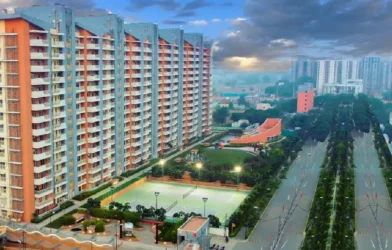Subtotal ₹0.00
A cross-section of stakeholders speak to Vinod Behl about the outlook for residential real estate in coming quarters owing to decline in housing sales.
Boman Irani, President Credai National
There are no signs of demand slowdown though there could be an impact on some markets which are overheated. Overall, at pan-India level; there are no concerns at all on the growth pick up. Short term blip in a real estate cycle is not something that we need to worry about. We need to see long term growth. Housing demand continues to be strong and is expected to grow further on the back of budgetary tax incentives ,and recent repo rate cut.
Ashwinder R Singh, Co-Chair CII Real Estate
The market is not dipping- it’s stabilizing. The last few years saw unprecedented sales, capital appreciation and momentum and what we are witnessing now is a natural tapering and not a downturn. The under INR one crore segment has felt the impact of AI-driven job losses, affecting affordability.But fundamentals like urban migration, infrastructure expansion and premium housing demand remains intact.The correction is about sustainability and not slowdown and as long as employment and interest rates hold steady, we should see a balanced and resilient market ahead.
Manju Yagnik, Vice Chairperson, Nahar Group
Despite a broader market slowdown, Mumbai’s real estate market remains strong, with property registrations in February 2025 maintaining last year’s levels. And further festive offers by developers will contribute to higher property registrations in MMR in the next quarter. Overall, the residential real estate market is set for steady growth in the upcoming quarter, driven by sustained demand , favourable economic conditions and further improvement in home loan affordability.
Samir Jasuja, Founder & CEO, PropEquity
The housing market is witnessing some correction after three years (2021, 2022, 2023) of record supply because of which absorption/sales is also on a declining trend. Rise in home prices , disturbing geopolitical developments and certain weaknesses in the economy have resulted in drop in sales. Traditionally high supply markets of Hyderabad, Pune and Thane continue to decline. These cities had the highest supply among all Tier 1 cities in 2022 and 2023 before touching a low in 2024 . In Q1 2025, these three cities have seen their YoY share of total launches dropping down to 29% from 38% .
Prashant Thakur, Head Research, Anarock
Housing sales have seen a 28% YoY decline in sales value and 5.5% dip in volume in Q1 2025, largely due to high base effect in Q1 2024. Despite this, residential real estate remains on a strong footing . A robust supply pipeline of 253.16 million sq ft over the next few years, decade low inventory overhang of 14 months and shorter buying cycles (26 days vs 33 days in FY21) reflect strong market sentiment. Twenty three percent YoY increase in home prices with NCR and Bangalore recording 34% and 44% hike respectively, further underscore the sector’s resilience and growth potential.
Sahil Agarwal, CEO, Nimbus Developer
Real estate demand remains robust, particularly in the high-end and luxury segments, driven by strong investor confidence and rising aspirations for premium living. Sales are expected to rebound in the next quarter and beyond due to further anticipated softening of home loan rates. This would provide stimulus to the housing market by enhancing affordability and making homeownership more attractive for both end-users and investors.
Ankit Kansal, Founder & MD, 360 Realtors & Axon Developers
The slowdown in Q1 2025 is largely a periodic correction with limited macroeconomic and structural implications. Real estate will continue to traverse a healthy trajectory, backed by robust demand and supply, upbeat economy and evolving buyer preference.The premiumisation of real estate will be a key theme in the coming quarters which will see many new developers in the segment .Especially as there will be increasing demand for premium and high mid priced properties in not just metros but in Tier 2 cities, as buyers are now willing to pay extra for managed amenities, lifestyle centric products and top tier facilities. Going forward, affordable and mid-income communities will thrive in Tier 2 cities.
Udit Jain, Director, ONE Group Developers
A single quarter of relatively lower sales does not indicate a lasting trend but rather a temporary fluctuation. This could be attributed to short-term factors such as the downturn in the equity market which has momentarily impacted investor-driven demand. However, demand from end-users for properties of reputed developers , remains robust, particularly in prime locations in metros and Tier 2. cities.














